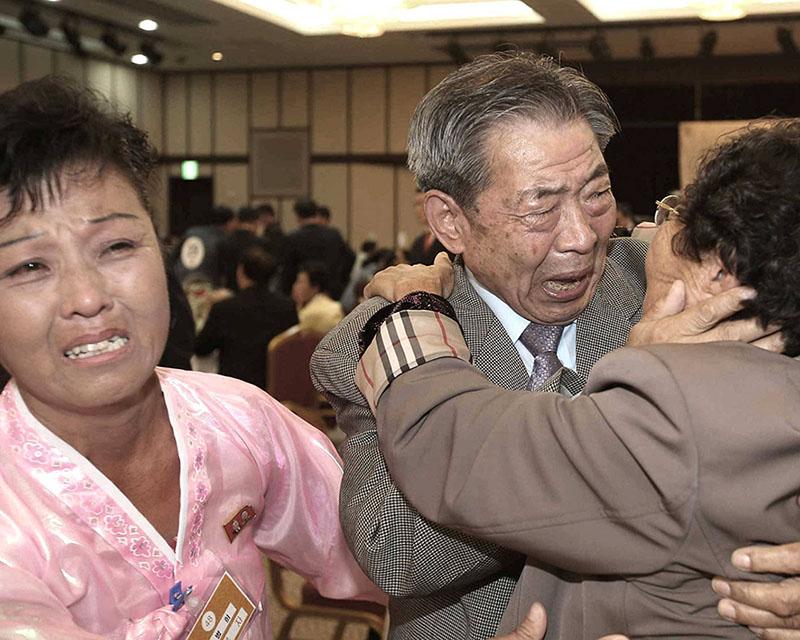For most survivors of the Korean war, the deepest scar from their tribulations was losing beloved family, whether it be their demise or their separation across the different aisles of the 38th parallel. Separated for nearly 70 years, most families teeter at the edge of life expectancy without a chance to say their final farewells, nevermind enjoy their time together. Lottery reunions between families split the North and South have given hope to many. That hope, however, rides on the slim chances of being chosen randomly with opportunities few and far between. The latest reunion, held in two rounds between Aug. 22-26, was the first in three years of its kind. Even then, only a few hundred got to visit the North to meet their kin; thousands still wait for the next possible chance.
These reunions are life-changing for the families involved, but they have been exploited as bargaining chips by the North time and time again. Former president Kim Dae-jung’s Sunshine policy was a more positive approach to North Korea that opened a diplomatic dialogue for the first time since the war, bringing the first rounds of reunions with it. Critics argue, however, that it has also brought economic funding through trade and support for the Kim dynasty and accelerated and enabled it to become a nuclear threat. Soon after Kim Dae-jung’s term, relations fell back apart after a series of incidents and the Sunshine policy was seen mostly as a failure, despite Kim being awarded the Nobel Peace Prize. In 2010, the policy officially ended under Lee Myung-bak’s term.
North Korea does not want their citizens to interact with the South. In fact, they restrict immigration and foreign contact as much as possible. They allow reunions because they understand that there will be benefits for themselves that would outweigh the costs. Perhaps this time, they could use these to warm up the relationship to ask for the necessary concessions: more money, more trade, more food. Then, they could take what was given and become a stronger and more threatening dictatorial state.
Skepticism is never unhealthy when it comes to what seems to be North Korea opening up to South. There is a precedent for North Korea pretending to become more friendly only to turn around and develop nuclear weapons, after all. However, there is as much to gain as there is to lose.
Imagine the pain of being separated from loved ones for 70 or so years – many of these families are willing to give anything and everything to make their reunions happen. Some families, despite their incredibly poor conditions, were using their life savings to purchase little pleasantries for their kin. Pictures of these reunions simultaneously emanate both happiness and pain.
It is often said to live without regrets. Yet, for those patiently waiting for their turn to meet with their kin, that burning regret is completely out of their hands. For the last time in their lives, they should be able to meet with their long-lost family, even if that means having to take another chance with North Korea. The emotional relief should be a priority, and the risks are not too extreme. North Korea seems to be willing to open up and talk more, now with the regime change and new governments, and the threat from North Korea is already at a point where their hand would not get much stronger even if they had a powerful military.
North Korea already has the ability to devastate South Korea and its most populous city, Seoul, within moments with their artillery. Their nuclear warheads already prove to be a powerful bargaining chip. Improving the economy of North Korea by removing sanctions would no doubt lead to higher military spending, but the stakes have been raised to the point where war is no longer a choice for either nation. When war is already an option so unlikely, we are not exactly risking here by allowing these families emotional respite.
Comprehending the extent of pain these families is difficult for me, who has not been alive back then and have not lost any loved one. Yet even with the tiniest understanding of their pain, I could tell how important these unions are for these families. The risk is moderate; the benefits enormous, even life or death. To me, reunions are worth pursuing if just to appease these grieving families, even without considering the possible mending of the relationship between the North and South as a result.

